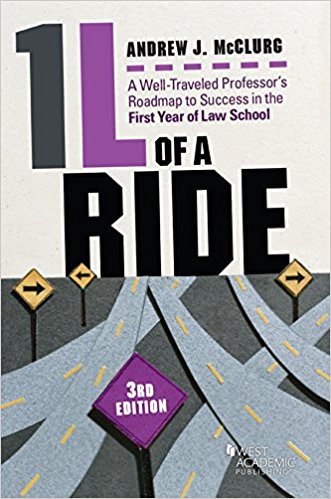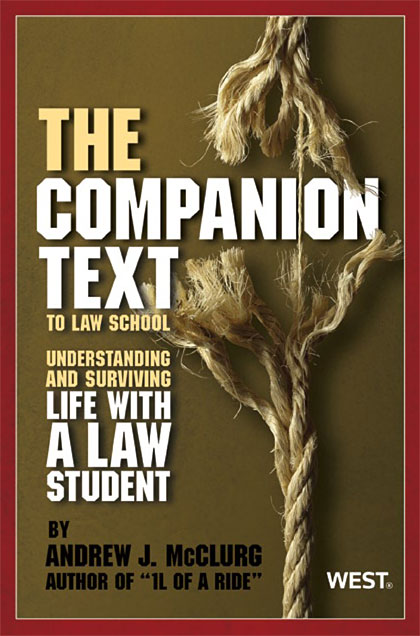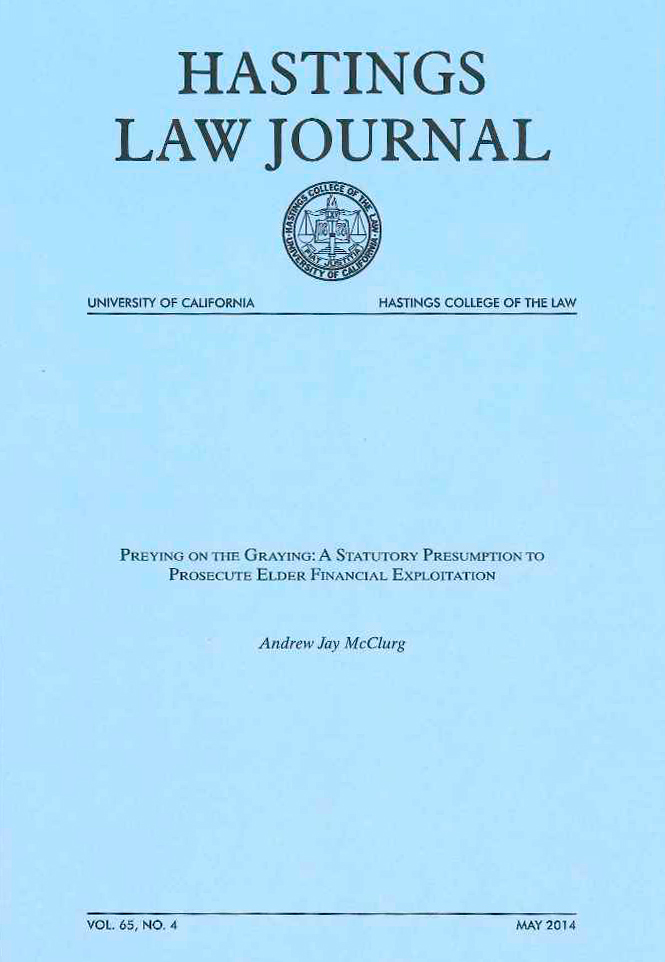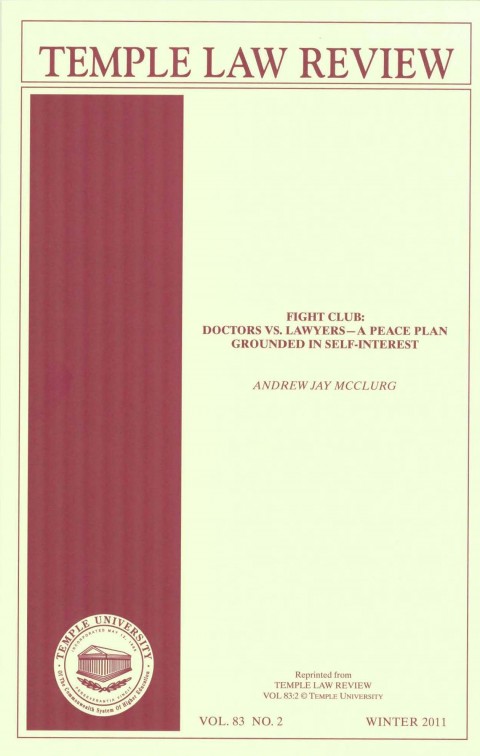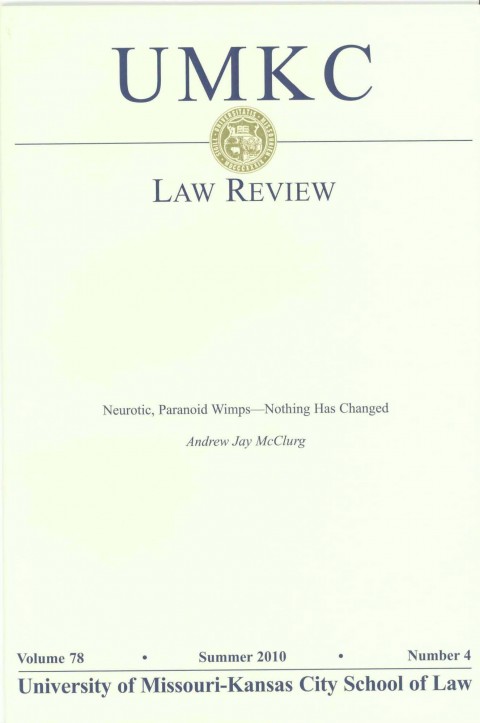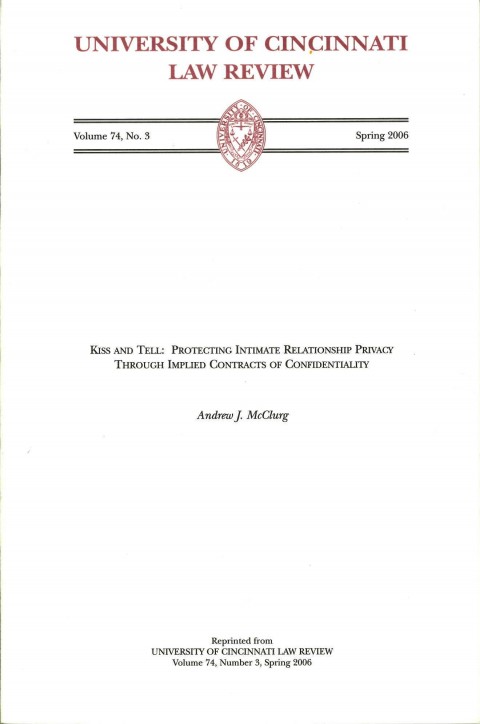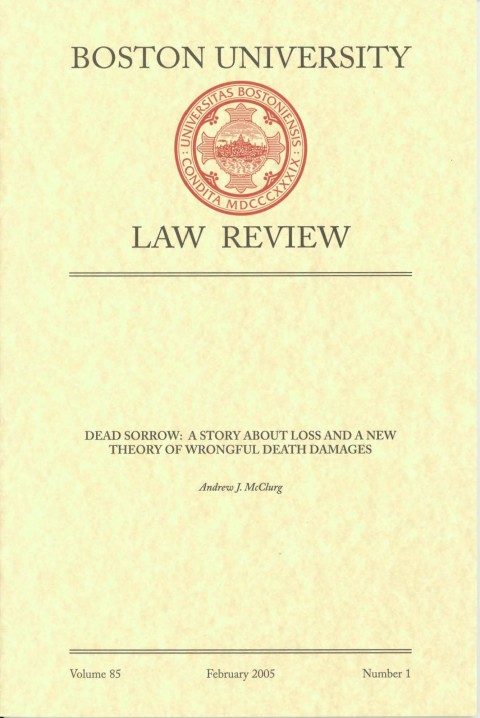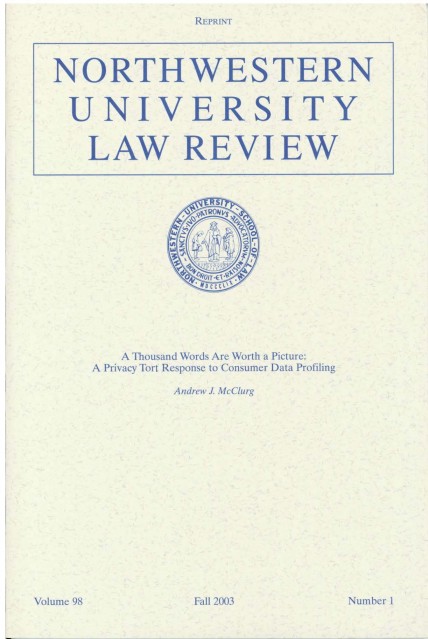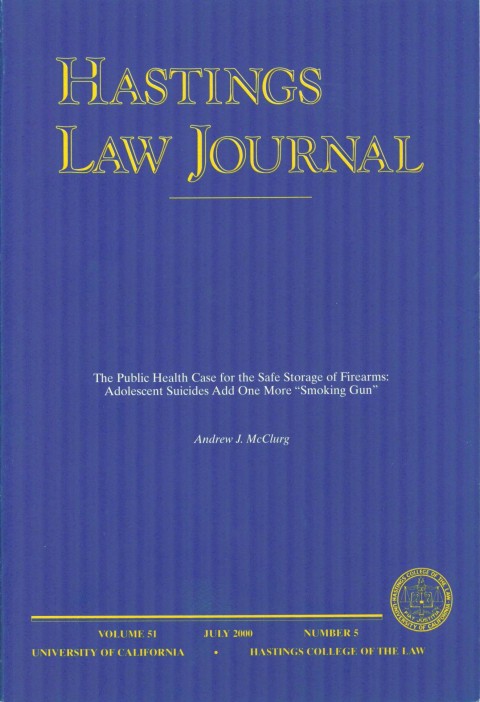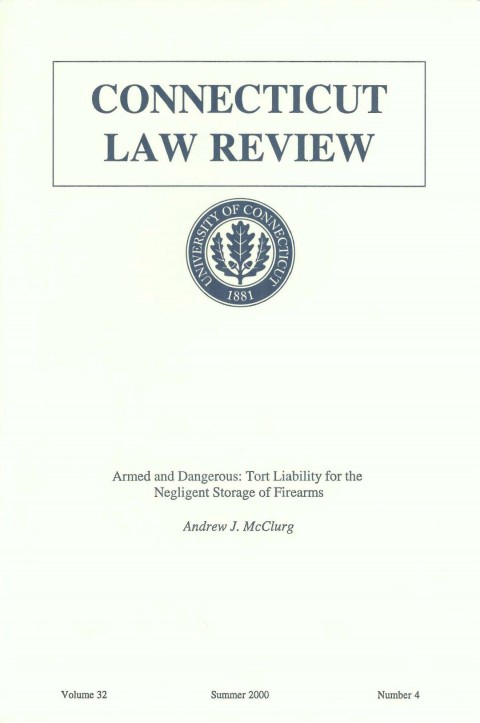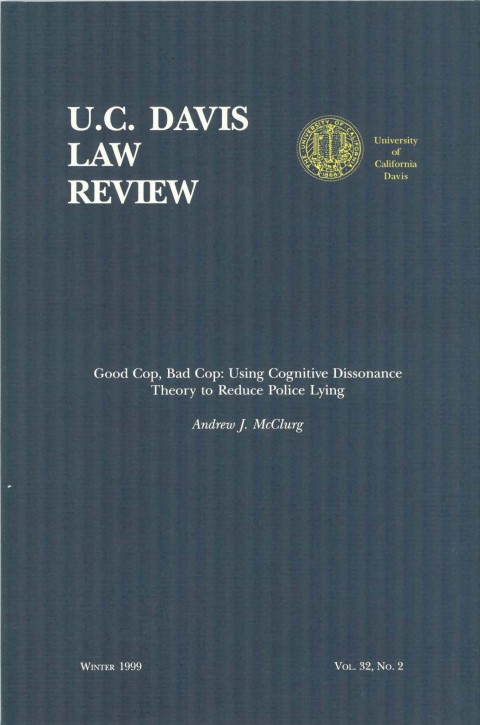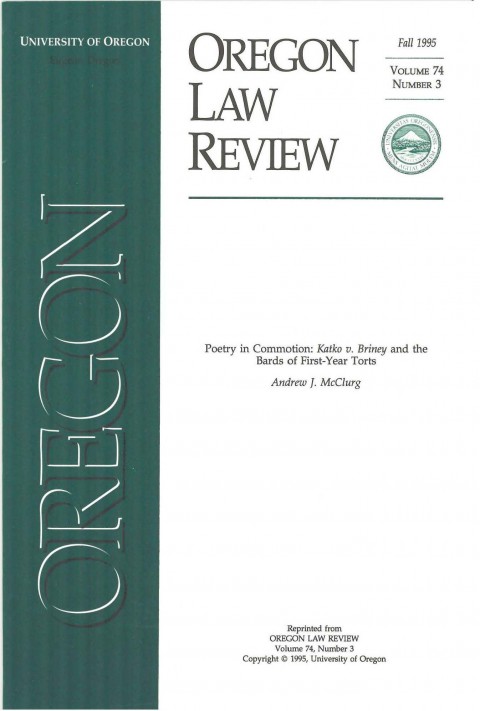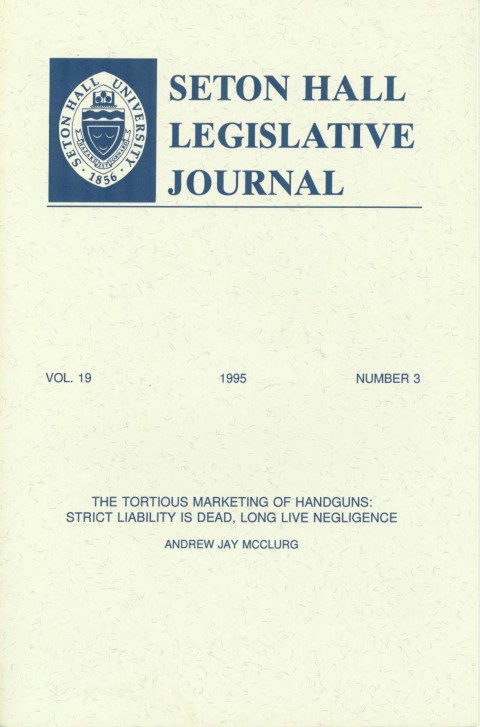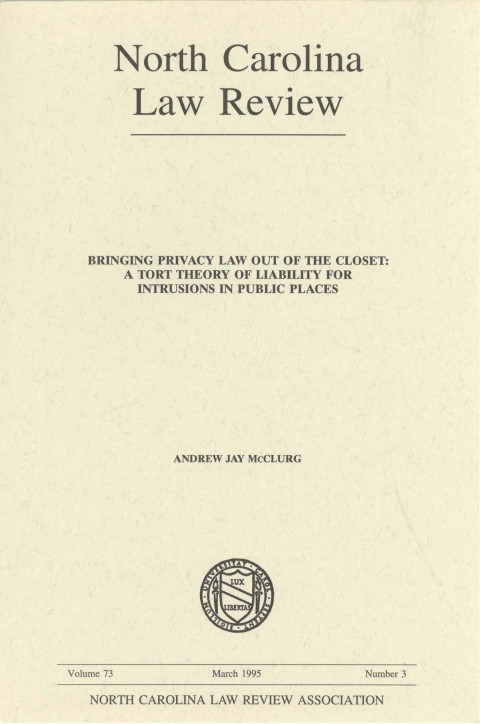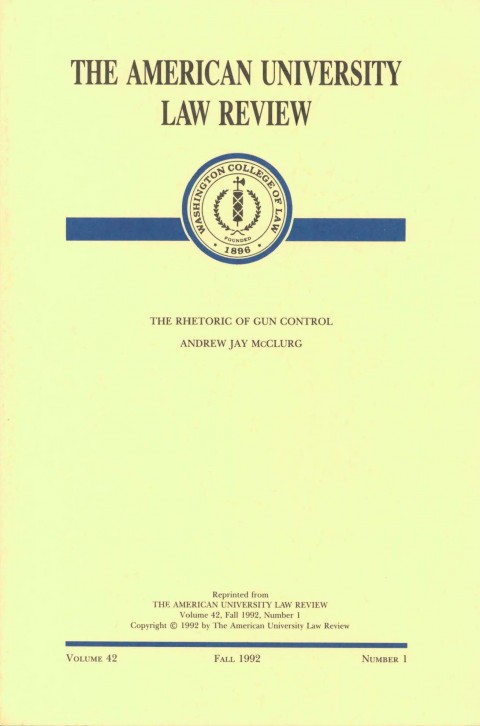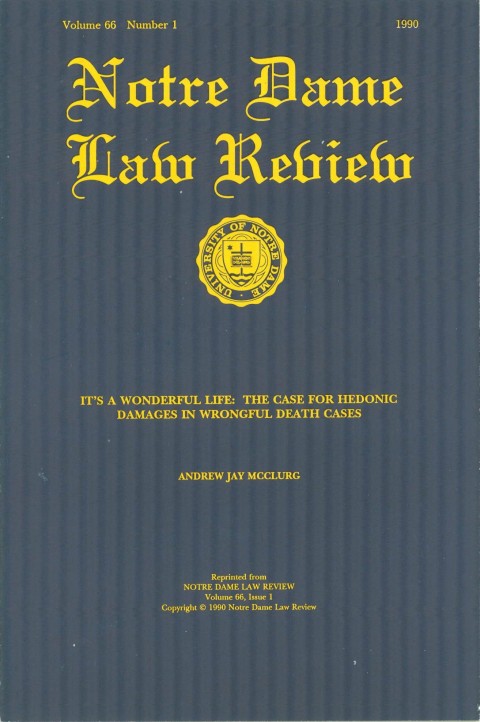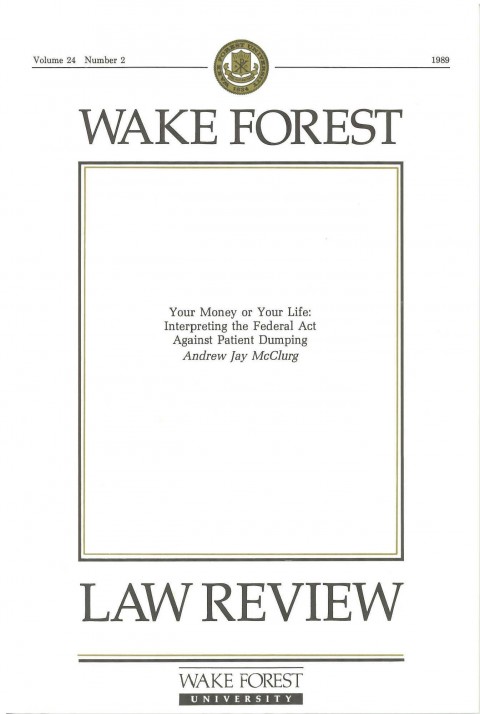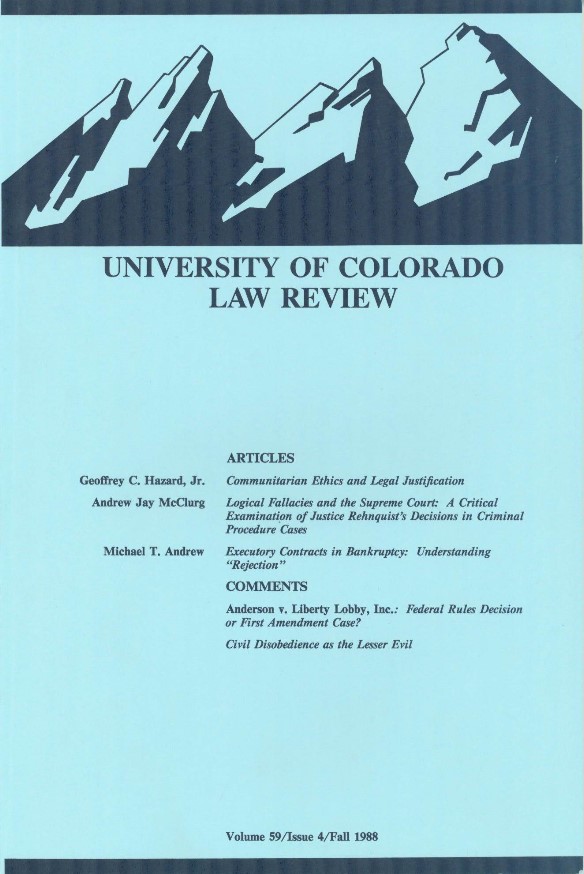June 24th, 2012 Maybe there should be an opposite abbreviation to TMI such as NEI (not enough information).
In a case involving a challenge to nuclear waste fees at a site intended to replace the Yucca Mountain disposal site, brought to our attention by way of The BLT: The Blog of LegalTimes, the U.S. Court of Appeals for the District of Columbia admonished the lawyers – in the attention-stealing first footnote no less – for using too many acronyms:
1. We also remind the parties that our Handbook of Practice and Internal Procedures states that “parties are strongly urged to limit the use of acronyms” and “should avoid using acronyms that are not widely known.” Brief-writing, no less than “written English, is full of bad habits which spread by imitation and which can be avoided if one is willing to take the necessary trouble.” George Orwell, “Politics and the English Language,” 13 Horizon 76 (1946). Here, both parties abandoned any attempt to write in plain English, instead abbreviating every conceivable agency and statute involved, familiar or not, and littering their briefs with references to “SNF,” “HLW,” “NWF,” “NWPA,” and “BRC” – shorthand for “spent nuclear fuel,” “highlevel radioactive waste,” the “Nuclear Waste Fund,” the Nuclear Waste Policy Act,” and the “Blue Ribbon Commission.”
Who knew there was a written court rule against acronyms or that George Orwell gave legal-writing advice?
— Nat’l Ass’n of Regulatory Utility Commissioners v. U.S. Dep’t of Energy, Case No. 11-1066 (D.C. Cir., June 1, 2012)
January 7th, 2012 A judicial friend from Florida sent along a case of first impression involving a parental rights determination between a birth mother and a biological mother that she calls “a law professor’s dream case.” It does sound a bit like a law school exam question—a very difficult one.
The case involved two women in a committed relationship who wanted to have a child. Ova from one of the women were removed, fertilized by donated sperm, and implanted in the other woman, who then gave birth to the child. Thus, one woman was the biological mother and one was the birth mother, an unusual situation to be sure.
Only the birth mother’s name appeared on the child’s birth certificate. For years, the two women reared their child together but, when the relationship failed, the birth mother, without telling the biological mother, fled to Australia with the child.
The trial court reluctantly ruled that only the birth mother was the legal mother but invited appeal of his decision. The Florida Fifth District Court of Appeal reversed, ruling that both women had parental rights to the child.
My judicial friend pointed out that this is a case begging, and no doubt destined, for scholarly attention by law professors and law students, although Judge Thomas D. Sawaya, writing for the majority, might shiver at the thought.
Judge Sawaya was not impressed that the only authority for the birth mother’s position that only gestational mothers have maternal rights were: law review articles and a Tennessee case that relied solely on a law review article.
Regarding law review articles relied on by the birth mother, the judge commented: “We do not believe that law review articles written by students and professors establish the common law.”
About the Tennessee case, Sawaya said: “The common law does not come from law students and professors who write law review articles, and we hardly think it comes from a decision rendered by a Tennessee court that does nothing more than cite a law review article as the source.”
Hmm, I guess that depends on how one defines “the common law.” The Tennessee case is part of the body of judicial precedent that forms the common law. It might not be persuasive precedent, but isn’t it still part of the common law? And simply because a judicial opinion relies on a law review article doesn’t remove the opinion from the realm of common law.
Courts cite law review articles frequently, including the U.S. Supreme Court, and there are innumerable instances of law review articles–including some written by students–that have turned the tide of the common law. As just one example, the products liability doctrine of market-share liability, first articulated by the California Supreme Court in Sindell v. Abbott Laboratories, was conceived from a student-written Note in the Fordham Law Review.
As an aside, my judge-friend was troubled that the majority’s analysis seemed to treat the child as a piece of property, giving no consideration to the best interests of the child, an issue the concurring opinion also focused on.
—T.M.H. v. D.M.T. , Case No. 5D09-3559 (Fla. 5th DCA, Dec. 23, 2011)
December 23rd, 2011 Nathan Koppel of the Wall Street Journal wrote an interesting front-page article about judges who use humor in their opinions, quoting McClurg and citing to Lawhaha.com.
Koppel explored the ongoing debate of whether and to what extent judges should use their written products as avenues for amusement.
What do you think?
Meanwhile, in the article, U.S. Ninth Circuit Court of Appeals Judge Alex Kozinski, a Lawhaha.com Hall of Famer, opined that Canadian judges are too boring and staid. Koppel quoted Kozinski saying: “I like my Canadian colleagues, but, boy, when it comes to reading their opinions, it’s like wading through molasses.”
But that’s not always true. Koppel cited one example of Canadian judicial humor and we have a couple other good ones here and here.
December 10th, 2011 U.S. District Judge Sam Sparks down in Austin, TX, peeved by the conduct of the lawyers in a pending case, chastised them for being “unable to practice law at the level of a first year law student” and ordering them to attend a kindergarten party at the courthouse. Here are the pertinent parts of his order:
You are invited to a kindergarten party … in Courtroom 2 of the United States Courthouse, … Austin, Texas.
The party will feature many exciting and informative lessons, including:
• How to telephone and communicate with a lawyer
• How to enter into reasonable agreements about deposition dates
• How to limit depositions to reasonable subject matter
• Why it is neither cute nor clever to attempt to quash a subpoena for technical failures of service when notice is reasonably given; and
• An advanced seminar on not wasting the time of a busy federal judge and his staff because you are unable to practice law at the level of a first year law student.
Invitation to this exclusive event is not RSVP. Please remember to bring a sack lunch! The United States Marshals have beds available if necessary, so you may wish to bring a toothbrush in case the party runs late.
This is the second time Judge Sparks has berated lawyers regarding their kindergarten skill-set.
Sparks’ boss, U.S. Fifth Circuit Court of Appeals Judge Edith Jones, was not amused by the “cute” order. Abovethelaw.com, via the Texas Lawyer, reported an email from Judge Jones to Judge Sparks that said in part:
It has not escaped my attention, or that of my colleagues or, I am told, nationally known blog sites that you have issued several ‘cute’ orders in the past few weeks. The order attached below is the most recent.
Frankly, this kind of rhetoric is not funny. In fact, it is so caustic, demeaning, and gratuitous that it casts more disrespect on the judiciary than on the now-besmirched reputation of the counsel. It suggests either that the judge is simply indulging himself at the expense of counsel or that he is fighting with counsel in what, as Judge Gee used to say, is surely not a fair contest. It suggests bias against counsel.
Guess we won’t be seeing any Sparks flying in Texas for a while.
— Order, Morris v. Coker, Case Nos. A-ll-MC-712-SS, A-ll-MC-713-SS, A-ll-MC-714-SS, A-ll-MC-7IS-SS, W.D. Tex., Aug. 26, 2011. Thanks to Professor Jodi Wilson, Douglas Giuliano, and others.
November 28th, 2011  Home of the Missouri Court of Appeals? Ol’ Frank Zotter happened upon this little ol’ case and we reckon we’re mighty glad he did.
In State v. Knowles, the Missouri Court of Appeals, a good ol’ bunch of guys and gals from over in them parts, took up an appeal where the trial judge had tossed out a criminal information for receiving stolen property. Well, shucks, we’ll just let the court tell y’all about it:
Old Dave Baird, the prosecuting attorney up in Nodaway Count, thought he had a case against Les Knowles for receiving stolen property, to-wit, a chain saw, so he up and files on Les.
Now Les was a bit impecunious, so the judge appointed him a lawyer, old Dan Radke, the public defender from down around St. Joe. Now, Dan, he looks at that old information and decides to pick a nit or two, so he tells the judge that the information old Dave filed against Les is no good …. Dan says Dave charged that Les “kept” the stolen chain saw and that’s not against the law. You don’t commit that crime by “keeping” the chain saw, says Dan; the law says you commit the crime of “receiving” if you “retain” the saw, and that’s not what Dave charged Les with, and the judge should throw Dave out of court. And that’s exactly what the judge did.
But old Dave was not having any of that. No, sir! …
Bystanders could plainly see the fire in old Dave’s eyes. He was not backing down. Sure. Dave could simply refile and start over with a new information by changing only one word. Strike “kept”; insert “retained.” But that is not the point. Dave knows he is right.
And so he is.
So we’ll just send the case back to Judge Kennish and tell the boys to get on with the prosecution.
— State v. Knowles, 739 S.W.2d 753, 754 (Mo. Ct. App. 1987). Thanks to Frank Zotter.
November 27th, 2011  When one is not enough. Wait. That’s not right. It’s Judge Jacob Hart of the Eastern District of Pennsylvania. Can’t be too careful about those typos. Just ask the plaintiff’s lawyer in Devore v. City of Philadelphia.
Judge Hart reduced his attorney’s fee award by $60,000 based on the poor quality of his written work, which, according to the judge, was “careless to the point of disrespectful.” The defendants described it even less charitably, as “vague, ambiguous, unintelligible, verbose and repetitive.” And those were the things they liked about it. Kidding.
The court noted that throughout the litigation, counsel identified the court as: “THE UNITED STATES DISTRICT COURT FOR THE EASTER [sic] DISTRICT OF PENNSYLVANIA,” adding that “[c]onsidering the religious persuasion of the presiding officer, the ‘Passover District’ would have been more appropriate.”
The priceless part (and what elevated the case into the Strange Judicial Opinions Hall of Fame) was the lawyer’s written response to the assertion that his fees should be reduced because of typos:
As for there being typos, yes there have been typos, but these errors have not detracted from the arguments or results, and the rule in this case was a victory for Mr. Devore. Further, had the Defendants not tired [sic] to paper Plaintiff’s counsel to death, some type [sic] would not have occurred. Furthermore, there have been omissions by Defendants, thus they should not case [sic] stones.
Judge Hart said that the above errors would have been “brilliant” if intentional, but that, based on the lawyer’s filings, “we know otherwise.”
Concluding that the lawyer’s filings wasted a lot of the court’s and the defendants’ time, the court halved the lawyer’s requested hourly rate from $300 per hour to $150. Non-lawyers might consider it amusing that a lawyer whose work is so poor that the court publicly disses him could still earn $150 an hour, but to be fair to the lawyer, he obtained a good result in the case for his clients. Also, the judge commended him for his in-court work.
May this case be a lesson to all law students out there who discount the value of their legal writing courses, not to mention their eighth-grade English courses. Cheers for Judge Hurt.
— Devore v. City of Philadelphia, No. 00-3598, 2004 U.S. Dist. LEXIS 3635, at *7–8 (E.D. Pa., Feb. 20, 2004). Thanks to Cynthia Cohan and Professor Howard Wasserman.
November 26th, 2011 U.S. Court of Appeals for the Third Circuit reversed a district judge in Pennsylvania, finding impropriety in the fact that the judge’s opinion dismissing plaintiff’s claims was “nearly identical” to a proposed order and opinion submitted by defendants’ lawyers.
The court had previously expressed its disapproval of trial courts adopting proposed “findings of fact and conclusions of law” submitted by the prevailing parties in litigation, although it said that such copying would not be ground for reversal unless the findings were clearly erroneous. This situation was different, according to the court, because it involved an “opinion”:
Here, however, we are not dealing with findings of fact. Instead, we are confronted with a District Court opinion that is essentially a verbatim copy of the appellees’ proposed opinion.
…
Judicial opinions are the core work-product of judges. They are more than findings of fact and conclusions of law; they constitute the logical and analytical explanations of why a judge arrived at a specific decision. They are tangible proof to the litigants that the judge actively wrestled with their claims and made a scholarly decision based on his or her own reason and logic. When a court adopts a party’s proposed opinion as its own, the court vitiates the vital purposes served by judicial opinions.
Certainly, the court seems correct in ruling that parties to litigation have a fair and reasonable expectation that the judge, not the parties, should be the one to articulate the reasons for the decision.
However, the court’s distinction between ghostwritten opinions and ghostwritten findings of fact and conclusions of law doesn’t hold up. Opinions and Findings of Fact and Conclusions of Law are the same thing, differing only in format. Both documents dispose of the losing party’s claims and give the reasons why.
And in fairness to the trial judge, it should be noted that he was following a common practice, as evidenced by the fact that the plaintiff’s lawyer devoted only one footnote of the appellate brief to the issue.
After my first trial as a young lawyer a million years ago, the trial judge–who was highly regarded and ultimately elevated to the Florida Supreme Court–called our firm, said our client had won, and asked us to draft an opinion to send to him. Ghostwriting for judges is as old as … well, ghostwriting.
— Bright v. Westmoreland County, 380 F.3d 729, 732 (3rd Cir. 2004).
November 26th, 2011 Legalese embraces redundancy. Legalese embraces redundancy. Legalese … sorry, just getting in the spirit. In a convoluted dispute regarding a real estate conveyance, Judge Mark P. Painter, Ohio Court of Appeals, First District, offered his common sense take on the phrase “free and clear title” and other legal redundancies:
Free and clear mean the same thing. Using both is an unnecessary lawyerism. Free is English; clear is from the French clere. After the Norman Conquest, English courts were held in French. The Normans were originally Vikings, but after they conquered the region of Normandy, they became French; then they took over England. But most people in England, surprisingly enough, still spoke English. So lawyers started using two words for one and forgot to stop for the last nine hundred years.
So free and clear do not mean separate things; they mean, and were always meant to mean, exactly the same thing. Just as null and void and due and payable mean the same thing. All of these couplets are redundant and irritating lawyerisms. And they invite just what has happened here—an assertion that they somehow have different meanings.
The Norman Conquest was in 1066. We can safely eliminate the couplets now.
What’s your favorite legal redundancy?
— Kohlbrand v. Ranieri, 823 N.E.2d 76, 78 (Ohio Ct. App. 2005).
November 24th, 2011  George W. Bush -- Sued by whales. Lawhaha.com obviously has great fondness for judges who liven up their opinions with humor and other writing spice, but a case from the U.S. Court of Appeals for the Ninth Circuit shows why judges need to exercise care in stirring in these ingredients.
In a suit brought against George W. Bush and Donald Rumsfeld on behalf of all whales, dolphins, and porpoises, the Ninth Circuit had to decide whether animals have standing to sue on their own behalf under the Endangered Species Act and other federal statutes.
The plaintiff was “the Cetacean Community,” a name chosen by the Cetaceans’ self-appointed attorney for all of the world’s whales, porpoises, and dolphins. The Cetaceans challenged the U.S. Navy’s use of low frequency sonar used to detect enemy submarines because the sonar harms marine life.
Bush and Rumsfeld moved to dismiss on the ground that the animals lacked standing to bring suit. The district court agreed and dismissed the action.
The animals appealed, relying on a statement made in a previous environmental case—Palila v. Hawaii Dep’t of Land and Natural Resources—in which the Ninth Circuit had indicated that an endangered member of the honeycreeper family, the Hawaiian Palila bird, had standing to sue on its own behalf. The specific language was that the bird “has legal status and wings its way into federal court as a plaintiff in its own right.”
The court had to decide whether the Palila language was binding precedent or only loose dicta. It ruled it was the latter, calling the statements “little more than rhetorical flourishes.”
With respect to the substantive issue, the court added that “It is obvious that an animal cannot function as a plaintiff in the same manner as a juridically competent human being.” Hmm, perfect entry for making a political joke about one of the defendants, but we try to stay apolitical.
The fact that courts have held monkeys, whales, and assumely all other non-human species (along with their human champions) lack standing to seek protection from the judicial system raises a troubling question: Who’s left to look out for them?
— Cetacean Cmty. v. Bush, 386 F.3d 1169 (9th Cir. 2004). Thanks to Daniel Green.
November 24th, 2011 Ohio Court of Appeals Judge Mark Painter combined humor and common sense in Gibson v. Donahue, where the plaintiff was injured being thrown from her horse, which was spooked by two Irish Setters that the defendant allowed to run free in an area restricted to equestrian use.
Talk about creative lawyering. The defendant tried to escape liability by relying on an Ohio statute intended to provide tort immunity for riding stable owners and horse show operators for injuries resulting from the inherent risks of equine activity (a statute Painter said “is noteworthy mainly for using the word ‘farrier’ ten times”).
Judge Painter observed that the case was one of first impression, “probably because no one before has been audacious enough” to try to extend the statute to a situation like this one.
Defendant did have a slim statutory leg to stand on. The statute extends immunity to “an equine activity sponsor, equine activity participant, equine professional, veterinarian, farrier, or other person.” However, Judge Painter said that for defendant’s construction to prevail, the statute would have to be read as applying to “any other person in the whole world.” Construed as defendant argued, “[a] person who negligently crashes an airplane into the crowd at an equine event would thus be immune to liability.”
By the way, a farrier is a blacksmith. Remember that if you’re a law student in Ohio. It might be on the bar exam.
— Gibson v. Donahue, 772 N.E. 2d 646, 648, 650 (Ohio Ct. App. 2002).
November 18th, 2011 Several grounds exist for a judge denying a lawyer’s motion. Now we have a new one: incomprehensibility.
Displeased with a lawyer’s inartful motion-drafting, U.S. Bankruptcy Judge Leif M. Clark (W.D. Tex.) entered an order captioned “Order Denying Motion for Incomprehensibility.” The judge couldn’t figure out what the heck the defendant was requesting in a motion titled, “Defendant’s Motion to Discharge Response to Plaintiff’s Response to Defendant’s Response Opposing Objection to Discharge.”
Judge Clark said: “The court cannot determine the substance, in any, of the Defendant’s legal argument, nor can the court even ascertain the relief that the Defendant is requesting. The Defendant’s motion is accordingly denied for being incomprehensible.”
Perhaps worried that the defendant might miss his point, Judge Clark appended a footnote in which he invoked the following quotation from the Adam Sandler movie, Billy Madison:
Mr. Madison [Sandler’s character], what you’ve just said is one of the most insanely idiotic things I’ve ever heard. At no point in your rambling, incoherent response was there anything that could even be considered a rational thought. Everyone in this room is now dumber for having listened to it. I award you no point, and may God have mercy on your soul.
— Order Denying Motion for Incomprehensibility, In re King, Case No. 05-56485-C, Feb. 21, 2006. Thanks to Sharee Moser.
November 7th, 2011 Should judges rhyme? A recent offering by Justice Michael Eakin (Pa. Sup. Ct.), one of the better rhyming judges, is submitted for your expert poetic analysis, preferably with reference to the late romantic period of Shelly, Byron and Keats.
Sung to the tune of the theme song from “Mr. Ed,” the television sitcom about the talking horse, here is part of Justice Eakin’s rhyming dissent from a ruling that the state’s drunk driving law does not apply to people on horses:
A horse is a horse, of course, of course,
but the Vehicle Code does not divorce
its application from, perforce,
a steed, as my colleagues said.
“It’s not vague” I’ll say until I’m hoarse,
and whether a car, a truck or horse
this law applies with equal force,
and I’d reverse instead.
To which we can add, with all due respect to Justice Eakin:
Justice Eakin, we love you, man,
for trying to do whatever you can
to spice up the lives of bar and bench.
But although it’s a dicey subject to broach,
could you please consider another approach?
‘Cause that latest rhyme gives off a bit of a stench.
Just kidding around, Justice Eakin. We love ya. Other Justice Eakin rhymes can be found here.
— Commonwealth v. Noel, 857 A.2d 1283, 1291 (Pa. 2004) (Eakin, J., dissenting). Thanks to Kelly Jordan.
November 6th, 2011 In a copyright battle between two British rap bands, an English court ruled that rap lyrics should for practical purposes be considered a “foreign language,” requiring expert testimony as to their interpretation.
British band Ant’ill Mob sued another band, Heartless Crew, alleging the defendant disparaged the band’s copyright for its 2001 hit song, “Burnin’,” by remixing the song using lyrics the plaintiff considered objectionable because they allegedly refer to drugs and violence, including the terms “shizzle my nizzle,” “mish mash man,” and “string dem up.”
Even after playing the record at half speed and consulting the Urban Dictionary, Judge Kim Lewison said he could not determine the meaning of the phrases without an expert witness.
The amusing predicament of three uppercrust, white, middle-aged judges trying to unravel rap slang was not lost on Judge Kim, who commented on the “faintly surreal experience of three gentlemen in horsehair wigs examining the meaning of such phrases.”
According to the Urban Dictionary (urbandictionary.com), “shizzle my nizzle” means:
a bastardization of “fo’ sheezy mah neezy,” a bastardization of “for sure mah n—,” a bastardization of “I concur with you wholeheartedly my African-American brother.
— Confetti Records v. Warner Music UK Ltd, [2003] EWHC 1274 (Ch). Thanks to Cynthia Cohan, Elise Hendrick, and Catherine Seville for sending this opinion. Catherine is the Director of Studies in Law at Newnham College in Cambridge and reports that Judge Lewison is “a good Cambridge man.” Indeed.
November 6th, 2011 There are plenty of cranky judges out there, but also some nice ones.
Have you ever noticed how nice people from Canada are? Well, it turns out that even the judges are super nice.
In National Leasing Group, Inc. v. Top West Ventures, the plaintiff sued to collect a debt and the defendant filed an intelligible counterclaim drafted by a friend consisting of 97 paragraphs and 26 pages. As you’ll read below, the Supreme Court of British Columbia could argue just cause for launching into the guy, but Master Bolton, the writing judge, responded to the bizarre pleading with kindness and an abundance of decorum. Here’s a taste of the court’s opinion:
On the face of the document, I had difficulty discerning any cause of action while the matter was being spoken to in chambers, but in view of its length and complexity, I concluded that I should reserve my decision in order to consider it in more detail. The first paragraph reads:
1. For the [DE]FENDANT with the knowledge of the David-Wynn:Miller; Language-Procedures (http://www.dwmlawprocedures.com; http://brucestellar.tsx.org) is with the damage: damage by the utilization of the fictitious-language/scribble as the foundation for the authority for the action/claim against the DE[FENDANT] damage by the criminal-rate of the interest [section: 347: Criminal-Codeof the Canada]; damage by the false-statements [section: 397.1(a); Criminal-Codeof the Canada]; damage by the completion of a fraud: constructive or actual [section: 380.1 of the Criminal Code of the Canada]; damage by the completion of a mail-fraud [section: 381 of the Criminal-Code of the Canada; damage by the bad-faith; by the PLAINTIFF and DEFENDANT by the COUNTER-CLAIM.
What did the judge have to say about this gobbledygook? With a generosity of spirit unparalleled in recorded judicial history, he said: “This is not too bad.”
However, he added that, unfortunately, he could not recognize anything “in any of its remaining 96 paragraphs.”
— Nat’l Leasing Group, Inc. v. Top West Ventures, 2001 BCSC 111 (Can.). Thanks to David Cheifetz.
October 31st, 2011 The Kansas Supreme Court publicly censured a rhyming judge in a 1975 case for a tasteless piece of doggerel in which he publicly humiliated a woman arrested for prostitution. His poetic order was deemed to be in violation of the judicial ethical canon that “[a] judge should be patient, dignified, and courteous to litigants, jurors, witnesses, lawyers, and others with whom he deals in his official capacity.”
We won’t perpetuate the misdeed by setting forth the offending rhyme here. Suffice it to say the judge repeatedly called the young woman a “whore” (in addition to showing bad judgment, he should be chastised for being a lousy poet; that’s what he came up with to rhyme with “1974” — the year of defendant’s arrest).
The most interesting aspect of the case was the Kansas Supreme Court’s commentary on judicial humor. In defense to the disciplinary proceeding, the censured jurist cited to several poetic judicial opinions and argued he should not be censured for following in this grand judicial tradition. The court observed:
Judges have long been enjoined from the use of humor at the expense of the litigants before them for reasons which should be apparent. Under the heading of “Ancient Precedents” in the canons of judicial ethics adopted in 1924 by the American Bar Association this appears:
“Judges ought to be more learned than witty; more reverend than plausible; and more advised than confident. Above all things, integrity is their portion and proper virtue ….”
“Patience and gravity of hearing is an essential part of justice; and an over speaking judge is no well-tuned cymbal ….” — Bacon’s Essay “of Judicature.” (198 Kan. xi.)
In 1967 a long time member of the supreme court of Arkansas in advising new judges on opinion writing had more to say on the subject. We quote:
“. . . Judicial humor is neither judicial nor humorous. A lawsuit is a serious matter to those concerned in it. For a judge to take advantage of his criticism-insulated, retaliation-proof position to display his wit is contemptible, like hitting a man when he’s down.” (Smith, A Primer of Opinion Writing, For Four New Judges, 21 Ark. L. Rev. 197, 210.)
Judges simply should not ‘wisecrack’ at the expense of anyone connected with a judicial proceeding who is not in a position to reply. … Nor should a judge do anything to exalt himself above anyone appearing as a litigant before him. Because of his unusual role a judge should be objective in his task and mindful that the damaging effect of his improprieties may be out of proportion to their actual seriousness. He is expected to act in a manner inspiring confidence that even-handed treatment is afforded to everyone coming into contact with the judicial system.
— In re Rome, 542 P.2d 676, 685 (Kan. 1975). Thanks to Lihwei Lin.
|
Funny Law School Stories
For all its terror and tedium, law school can be a hilarious place. Everyone has a funny law school story. What’s your story?
|
Product Warning Labels
A variety of warning labels, some good, some silly and some just really odd. If you come encounter a funny or interesting product warning label, please send it along.
|
Tortland

Tortland collects interesting tort cases, warning labels, and photos of potential torts. Raise risk awareness. Play "Spot the Tort." |
Weird Patents
Think it’s really hard to get a patent? Think again.
|
Legal Oddities
From the simply curious to the downright bizarre, a collection of amusing law-related artifacts.
|
Spot the Tort
Have fun and make the world a safer place. Send in pictures of dangerous conditions you stumble upon (figuratively only, we hope) out there in Tortland.
|
Legal Education
Collecting any and all amusing tidbits related to legal education.
|
Harmless Error
McClurg's twisted legal humor column ran for more than four years
in the American Bar Association Journal.
|
|
|





